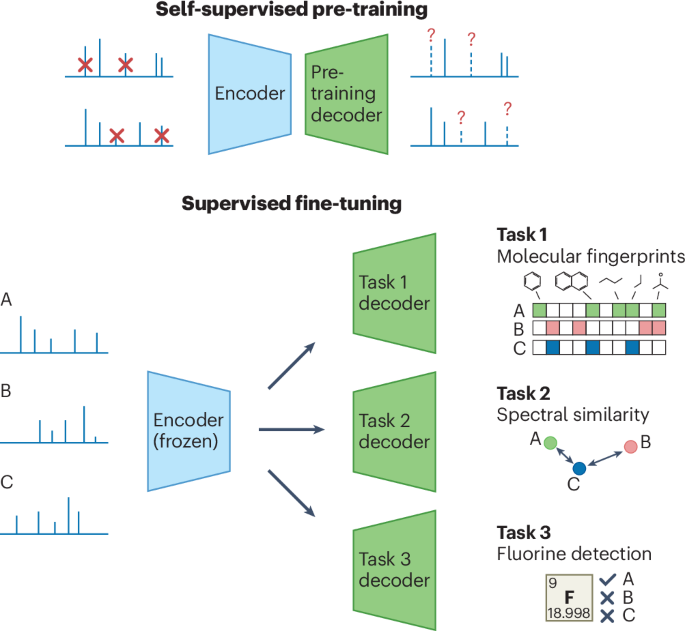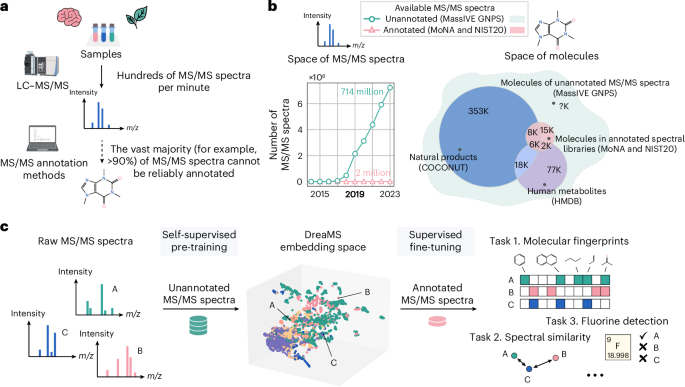Now Reading: Advancing Small-Molecule Analysis with Self-Supervised Learning
-
01
Advancing Small-Molecule Analysis with Self-Supervised Learning
Advancing Small-Molecule Analysis with Self-Supervised Learning

Quick Summary
- A groundbreaking self-supervised learning approach has been developed using 24 million mass spectrometry spectra too create a foundation model for detecting and characterizing small molecules.
- The methodology focuses on tandem mass spectrometry, which plays a critical role in molecular detection in fields like biotechnology and pharmaceuticals.
- the paper was published in Nature biotechnology on 23 May 2025.
- This foundational model is expected to advance the understanding of chemical compounds and accelerate innovations across multiple scientific domains.
Image included:
!Read More
Indian Opinion Analysis
India stands poised to benefit significantly from advancements such as this self-supervised mass spectrometry innovation. The technology coudl bolster the country’s growing biotechnology, pharmaceutical, and research sectors by improving molecular analysis capabilities.such breakthroughs align well with India’s vision for fostering innovation-driven industries while supporting emergent applications such as drug discovery and environmental monitoring.
Additionally, India’s researchers could leverage these advancements to address domestic challenges involving healthcare diagnostics or agricultural testing through affordable technologies powered by machine learning models like these. Collaborative engagements with global research initiatives would further enhance India’s standing within the scientific community.
The potential ripple effects extend beyond academia into industrial-scale applications, presenting opportunities for Indian startups specializing in AI-driven biotech solutions.However, integrating this innovation will require local adoption frameworks prioritizing accessible tools and workforce training in advanced technology domains-a direction that must remain central to India’s policy-making efforts.
























